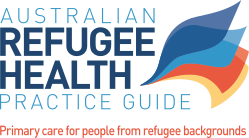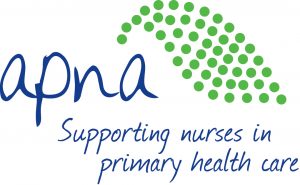Refugee patients in primary care
Table of contents
Key points
- People from refugee backgrounds, including people seeking asylum, come from a diversity of backgrounds and experiences.
- People from refugee backgrounds will have similar health concerns to their Australian-born counterparts, but may also have health issues specific to their country of origin and their migration and settlement experience.
- People from refugee backgrounds have higher rates of long-term physical and psychological problems than other migrants, due in large part to their exposure to deprivation, persecution and human rights violations as well as post-migration stressors.
- New arrivals from refugee backgrounds will typically be unfamiliar with Australian healthcare services systems and procedures, including the roles of general practice and other primary healthcare services, pharmacy, and hospital-based services.
- An incremental, person-centred and trauma-informed approach is recommended for recovery and long-term care of people from refugee backgrounds.
- General practice has a key role to play in undertaking post-arrival health assessments and providing ongoing care.
- Refugee patients with complex needs may require assistance from other services. Primary care is ideally placed for managing referrals and coordinating multiple services.
Overview
Each year many thousands of people from refugee backgrounds settle in Australia from regions including the Middle East, Africa and South-East Asia, where they have endured conflict, persecution and dislocation from their homes, families and culture.
Reported prevalence of torture and war-related potentially traumatic experiences varies and is difficult to generalise across groups. A 2016 systematic review reported prevalence of torture ranged between 1–76% (median 27%) and that almost all participants across all studies had experienced war-related potentially traumatic experiences.1 This may include forced dislocation, prolonged political repression, refugee camp experiences and loss of, or separation from, family members in violent circumstances.
Many people from refugee backgrounds, including people seeking asylum, have higher rates of long-term physical and psychological problems than other migrants, due in large part to their pre-immigration experiences, which are compounded by post-migration factors. People from refugee backgrounds can experience barriers when accessing primary care and other services. These may be related to trauma symptoms associated with the refugee experience, language, culture, health system literacy, lack of appropriate services, socioeconomic disadvantage as well as policies that restrict eligibility to health and other services.2,3
Approach to care
Accessible primary care is ideally suited to providing an incremental, patient-directed approach to long-term care and recovery for refugee patients in Australia. Developing continuity of care for patients from refugee backgrounds can be promoted by a whole-of-practice approach with attention to trauma-informed care. See Whole-of-practice approaches, Approach to consultation and management.
Patients with complex needs may benefit from primary care with support from settlement, specialist refugee and medical services, mental health and trauma services. Primary care can play a valuable role in coordinating multiple services if these are required. See State and territory referrals.
Health assessments are useful for planning the care of all newly arrived people from refugee backgrounds, including people seeking asylum, even if they are not eligible for the MBS funded health assessment. They remain as useful principles for refugee patients who arrived some time ago, but are new to your care. See Refugee health assessment.
The time-based Medicare Benefits Schedule (MBS) items 701, 703, 705 and 707 can be used for the ‘Health Assessment for Refugees and other Humanitarian Entrants’. These MBS items enable GPs to undertake a complete history, examination, investigation, problem list and management plan for new arrivals, many of whom will not have had access to comprehensive health care for some years.
For information regarding eligibility for the MBS funded health assessment see the Department of Health Medicare Health Assessment Resource Kit.
Considerations
Many patients from refugee backgrounds may:
- require a professional interpreter (accessible free of charge via the Translating and Interpreting Service National Doctors’ Priority Line on 1300 131 450). See Communication and interpreters for further information about working with interpreters.
- not have undergone pre-departure screening or may have medical conditions that were not picked up prior to arrival in Australia
- have physical and psychological effects associated with torture or other traumatic events
- have spent extended periods in detention in Australia
- be experiencing medical conditions that are uncommon in Australia
- be struggling with the practical tasks of settling in Australia, particularly housing and financial problems
- not know where to get assistance
- require an approach to consultation and management that accommodates the impact of past trauma, prior experience of health care, cultural differences and the stresses of resettlement. See Approach to consultation and management.
Resources
For country background information:
- Australian Department of Home Affairs Country Profiles
- Ethnomed
- World Health Organization
- United Nations High Commission for Refugees (UNHCR)
- US Centres for Disease Control
References
- Sigvardsdotter E, Vaez M, Rydholm Hedman A-M, Saboonchi F. Prevalence of torture and other war-related traumatic events in forced migrants: A systematic review. Journal on Rehabilitation of Torture Victims and Prevention of Torture. 2016;26(2):41-73.
- Cheng I-H, Drillich A, Schattner P. Refugee experiences of general practice in countries of resettlement: a literature review. Br J Gen Pract. 2015;65(632):e171-e176.
- Li SS, Liddell BJ, Nickerson A. The relationship between post-migration stress and psychological disorders in refugees and asylum seekers. Current psychiatry reports. 2016;18(9):82.




